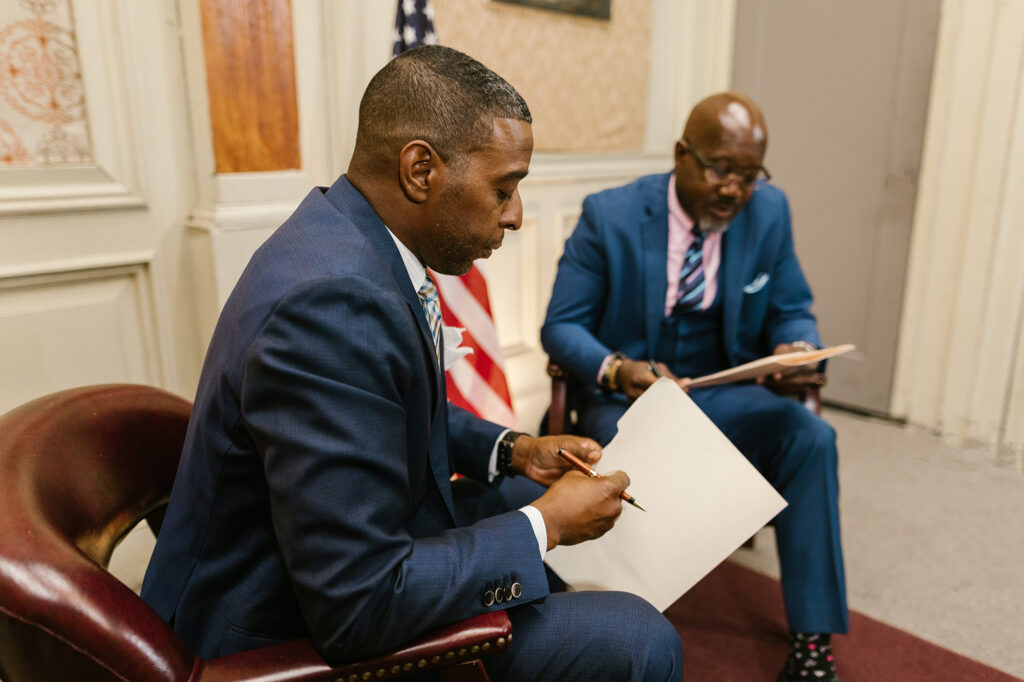Best Practices for Contract Negotiation in Defense Contracting
Introduction
For many professionals, the art of negotiation is a pivotal skill, though few will need this skill more than those in defense contracting. It’s a sector where precision, compliance, and strategic foresight converge to shape profitable contracts that adhere to the highest regulatory compliance standards. Here, we’ll discuss best practices for negotiating contracts in defense contracting. It aims to offer insights into effective communication, the subtle nuances of compromise, and the importance of a well-orchestrated negotiation strategy.
Understanding the Defense Contracting Landscape
 Defense contracting demands more than just a cursory understanding of business norms. It is a sector characterized by its complexity and rigorous standards. For these professionals, every contract carries significant implications for the businesses involved and national security and defense readiness.
Defense contracting demands more than just a cursory understanding of business norms. It is a sector characterized by its complexity and rigorous standards. For these professionals, every contract carries significant implications for the businesses involved and national security and defense readiness.
Negotiating in this profession means navigating a maze of regulations, understanding the needs of a specialized market, and acknowledging the high stakes involved. The challenges here are multifaceted, ranging from understanding the specific needs of the defense agency you’re working with to staying abreast of changes in regulations and technological advancements. This landscape is continually evolving, influenced by global politics, technological innovation, and shifts in national defense strategies.
Pre-Negotiation Preparation
At the onset of it all, effective negotiation begins with thorough preparation. This crucial phase involves extensive research to understand the specific defense agency, including analyzing their previous contracts and negotiation tactics and how they fit into the national defense strategy at that point in time. Armed with this information, a contractor can anticipate the other party’s needs and priorities, which is instrumental in crafting a strategy that addresses both parties’ objectives.
Setting clear objectives and boundaries before the negotiations is another critical step. Defining a successful outcome for your organization, including acceptable compromise points and non-negotiable terms, ensures a focused negotiation approach. Additionally, a solid grasp of the relevant legal and regulatory frameworks governing defense contracting is essential. Such knowledge not only helps in constructing compliant contracts but also serves to identify and avoid potential legal issues before they arise. However, this can be mitigated using a platform like Odyssey DCS, which helps cut through the red tape and keep you compliant.
Effective Communication Strategies
In defense contracting, clear and direct communication is critical to negotiation success. Establishing trust and rapport with the defense agency is fundamental and is achieved through transparent and respectful communication. This lays the groundwork for a negotiation environment where both parties are committed to a successful outcome.
It is equally important to communicate with precision. The language used in negotiations and the resulting contracts must be unambiguous to avoid misunderstandings and ensure compliance with all regulations. Additionally, effective negotiation is characterized by active listening. By fully understanding the defense agency’s position, constraints, and objectives, a defense contractor can better formulate proposals that align with the interests of both parties and facilitate the achievement of a mutually beneficial agreement.
Strategies for Compromise and Flexibility
Negotiating defense contracts often requires a degree of compromise and flexibility. Knowing when to be firm and when to adapt is crucial. This entails a strategic approach to negotiation, where specific terms may be relaxed in exchange for concessions in other areas that are more critical to the organization’s objectives.
Adopting a problem-solving mindset can lead to creative solutions that benefit both parties. This means exploring various options and being open to different methods of contract execution that meet the essential needs of the defense contractor and the military. Understanding the implications of each trade-off made during negotiations is vital to ensuring that the final contract aligns with the company’s strategic goals and operational capabilities.
Leveraging Technology and Tools
In the contemporary defense contracting world, technology is more than just an aid; it’s necessary. Platforms like Odyssey DCS revolutionize how negotiations are approached, offering streamlined, efficient solutions that bring clarity and simplicity to an otherwise complex process. Our digital tools enable data-driven decision-making, a crucial element in the negotiation process, ensuring that every decision is grounded in solid, factual information. This technological leverage is not just about efficiency; it’s about equipping negotiators with the power to make informed, strategic decisions in real-time.
Post-Negotiation Best Practices
The journey doesn’t end with a handshake and a signed contract. Post-negotiation is equally critical. It’s about ensuring that the terms agreed upon are not just words on paper but actions in practice. It involves a commitment to adhere to the agreed terms, ensuring compliance and the fulfillment of all obligations. This phase is also about relationship management maintaining a positive rapport with the other party, which is instrumental for future negotiations. It’s a continuous cycle of building and maintaining trust, an essential component in defense contracting.
In negotiations, every decision carries weight. It’s not just about the immediate outcomes but the ripple effects these decisions have. Negotiators must consider the broader impact, how each decision affects the parties involved, and the larger defense landscape. This understanding is crucial in making decisions that are beneficial in the short term but sustainable and responsible in the long run.
Conclusion
In conclusion, effective contract negotiation in defense contracting is multifaceted and dynamic. It requires a deep understanding of the industry, a strategic approach to communication, and an adeptness in managing complexities. It’s about leveraging technology, understanding the impact of decisions, and maintaining a balance between various factors. By mastering these aspects, negotiators can confidently navigate this challenging field and achieve beneficial outcomes for all parties involved.
For those looking to deepen their understanding and improve their skills in defense contract negotiations, engaging with Odyssey DCS offers invaluable insights and solutions. Contact us today for a demo to see how we can help you level up your contract negotiation skills and land your next contract!
